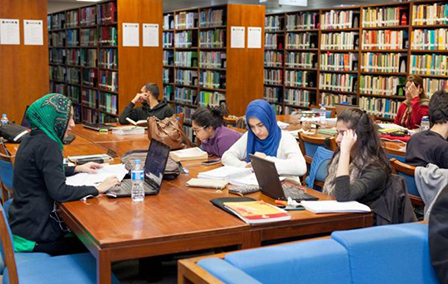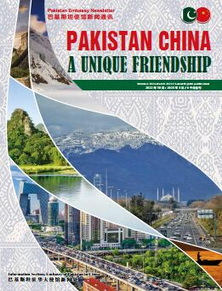

Pakistan Study Centers

Confucius Institute in Pakistan

Advisory for Students

Embassy College

Embassy of Pakistan Newsletter
CPEC
China Pakistan Economic Corridor (CPEC)
China Pakistan Economic Corridor (CPEC) is the flagship project of President Xi’s Belt and Road Initiative (BRI). It marks a new phase in Pakistan – China relations by placing economic cooperation and connectivity at the center of bilateral agenda. CPEC is an economic partnership to transform Pakistan into a geo-economic hub. It was formally launched by the two countries on July 5, 2013 in Beijing during the visit of Pakistan’s Prime Minister to China while first set of CPEC projects were inaugurated during the visit of Chinese President Xi Jinping to Pakistan in April 2015.
CPEC aims at greater connectivity and trade linkages between Pakistan and China through a vast network comprising roads, rail, fiber optic, energy pipelines, industrial clusters and Special Economic Zones (SEZs). CPEC connects Kashgar region in China with Gwadar region in Pakistan. CPEC will augment the trade potential of China and Pakistan with the rest of the world by linking China with Arabian Sea and Persian Gulf. This way, it will directly benefit billions of people inhabiting China, South Asia, Central Asia and the Middle East.
CPEC envisions to achieve: (i) developing and operationalizing Gwadar Port on modern lines (ii) building infrastructure, (iii) creating energy and trade corridor for China through Pakistan and (iv) enhancing Chinese investment in Pakistan through construction of Industrial Parks and Special Economic Zones. Projects in these sectors include government to government cooperation, private sector collaboration and equity investment by Chinese companies. The two Governments are working for the completion of these projects according to agreed timelines.
In its first phase, CPEC has helped us develop / upgrade transport and communication infrastructure and address our essential energy needs. A network of highways and motorways has provided more reliable Pakistan-China connectivity across the Karakoram Mountains and smoother inland communications. CPEC investment and its spin off effects have also generated thousands of jobs.
The key energy projects that have been completed so far include: 2x660 MW Port Qasim power plant; 2x660 MW Sahiwal power plant; 2x330 MW Engro Thar power plants; 50 MW Hydro China Dawood Wind Farm Thatta; and 400 MW of total 1,000 MW capacity Quaid e Azam Solar Park, Bahawalpur. In total 11 projects of over 6370 MW have been completed, along with an HVDC Lahore – Matiari Transmission Line of 880 km. Three more projects of around 1200 MW are expected to be completed within 2023-24.
Similarly, in infrastructure projects, KKH Phase II (Havelian - Thakot Section), Peshawar-Karachi Motorway (Multan - Sukkur Section), Hakla - D.I Khan Motorway and Orange Line Metro Train – Lahore have been completed in the first phase.
CPEC has achieved important early harvest projects and has entered into its second phase which is even more promising as it broadens the scope of cooperation and focuses on socio-economic development, science and technology, agricultural cooperation and industrialization.
For the implementation of CPEC, the two countries have established a Joint Cooperation Committee (JCC) which is co-chaired by Ministry of Planning, Development and Special Initiatives (MPD&SI) on Pakistan side and National Development and Reform Commission (NDRC) on Chinese side. Meetings of JCC are held at regular intervals to take stock of CPEC projects and endorse the workings of its subordinate Joint Working Groups (JWG). Eleven (11) JCC meetings have been held till date, with the most recent one taking place on 27 October 2022 via video link.
There are eleven CPEC JWGs on (i) Planning, (ii) Energy, (iii) Transport Infrastructure, (iv) Gwadar, (v) Industrial Cooperation, (vi) Security, (vii) Socioeconomic Development, (viii) International Cooperation and Coordination, (ix) Agriculture Cooperation, (x) Science and Technology and (xi) Information Technology Industry. Meetings of the JWGs are held regularly between the designated focal ministries / departments from both sides.
11th Session of Joint Cooperation Committee (JCC) of CPEC:
The meeting of 11th Joint Cooperation Committee (JCC) of CPEC was held through video conference on 27th October 2022. It was co-chaired by Federal Minister for Planning Development & Special Initiatives, Professor Ahsan Iqbal & Vice Chairman National Development & Reform Commission (NDRC) of China, Mr. Lin Nianxiu.
During the meeting, the conveners of the Joint Working Groups (JWGs) on Energy, Transport Infrastructure, Gwadar, Socio-Economic Development, Security, Long-Term Planning of CPEC, Industrial Cooperation, International Cooperation & Coordination, Science & Technology, and Agriculture Cooperation presented reports highlighting the progress on their specific areas and the future plans of actions.
The JCC also highlighted the significance of the key projects for energy and infrastructure development, which are now operational and providing a myriad of opportunities for socio-economic development in Pakistan. It was also informed that another 3,100 MW which have achieved 90% milestones for financial close (700 MW Azad Pattan HPP, 1124MW Kohala Hydel Project and 1320 MW Thar Coal Block-I), would be finalized at the earliest so as to get closer to the envisaged target of 17000 MW.
The project in Motorways & Highways of around 888 Km was also highlighted which has been constructed with both Chinese and local financing (another 853 under construction through local financing). The KKH-Thakot-Havelian, one of the flagship projects of this sector, has received international recognition. Similarly, another priority project, the Karachi Circular Railway (KCR) was discussed in detail which will benefit a large segment of the population of Pakistan’s largest city, Karachi.
Both sides also agreed to start the ML-1 project which is considered to be the backbone of the CPEC. It was also agreed to include a new area of “Water Resource Management and Climate Change’ which will have great importance especially after the recent flood which badly affected Pakistan. Similarly, both sides agreed to explore new avenues in the mining sector and it was decided to set up a new working group to explore the sector.
The new initiative of Government of Pakistan to include 10,000 MW of solar energy in our national energy mix was also taken up during the meeting and Chinese companies were invited to take advantage of this investment opportunity. Both sides also agreed to expand bilateral cooperation in Information Technology and it was decided that Chinese companies will establish research centers in Pakistan to explore new avenues in this sector.
The cooperation in agriculture sector was also discussed at length during the 11th JCC, which is one of the essential elements of the second phase of CPEC. Pakistan has also finalized some agreements to promote export of Pakistani agricultural items to China.
The Pakistani co-chair of the JCC, Professor Ahsan Iqbal assured his Chinese counterpart of Pakistan government’s efforts and commitment to continue to beef up the security of Chinese working under CPCE projects.
The two sides expressed confidence that the 11th JCC meeting would give a new impetus to high-quality development of CPEC.


.jpg)
.jpg)
.jpg)
.jpg)
.jpg)
.jpg)
.jpg)







